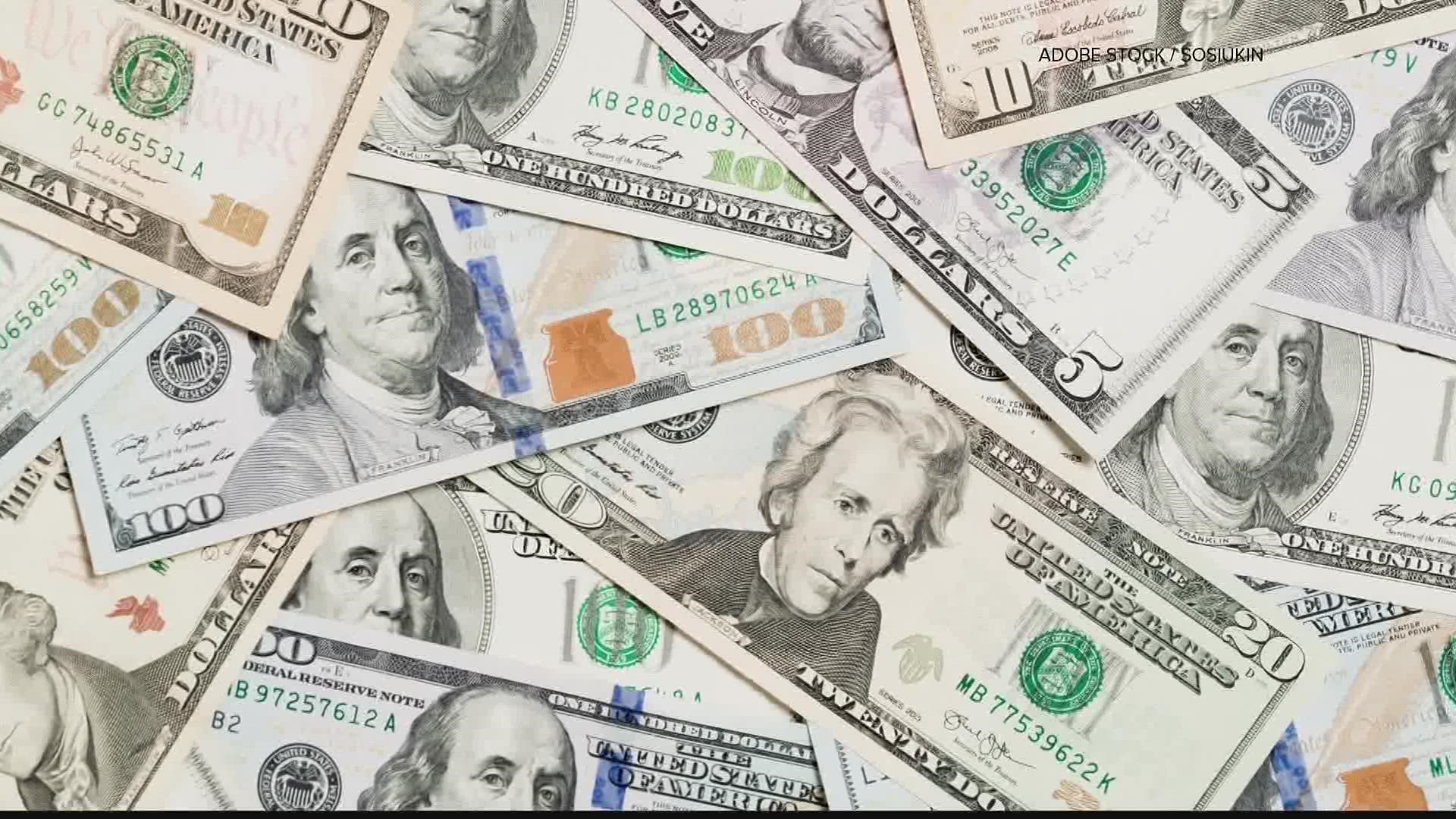ATLANTA — The state has more money than it can spend -- $5 billion. It's the result of a surging economy supplemented by federal stimulus money.
What to do with it could include sending more government checks to taxpayers. Despite its riches, Georgia has problems. There’s a backlog of expensive state-funded construction projects. State prisons are understaffed and schools are always looking for teachers. And $5 billion of surplus could effectively attack some of those problems.
Beau Evans with State Affairs, a news site, crunched some numbers and posted them.
"It's like, if you made $60,000 a year and your boss said you’re actually going to make $70,000 this year," Evans said. "What you would do with that extra chunk of cash?"
The politically popular choice would be refunds to taxpayers, which could be worth $1,250 to individual taxpayers and $2,500 to couples filing joint returns.
"Returning the taxes that you paid, I don’t think a lot of people are going to complain about that," Evans said.
But if the state spends it, the state could replace 200 worn-out bridges that are over 50 years old and are past their shelf life.
It could hire also 22,000 new teachers – about 10 per school statewide.
The surplus could give $6,000 pay bonuses to public school staff – from teachers to school bus drivers – in addition to bonuses they’ve already gotten from the state.
It could hire 25,000 government workers in short staffed agencies serving health care and prisons. Those needs have been starved of state funding over the last decade, said budget analyst Danny Kanso of the Georgia Budget and Policy Institute, a left-leaning think tank.
"Now that those excuses -- that we don’t have enough funding -- appear to no longer be true, we can finally begin to address some of these longstanding issues that really we’ve punted forward," Kanso said.
Kanso said the state has already refilled the state's emergency "rainy day" fund with previous surplus money.
The answer is likely to come during next year’s legislative session – following an election campaign in which both major candidates for governor have gone on record as favoring sending checks to taxpayers.

